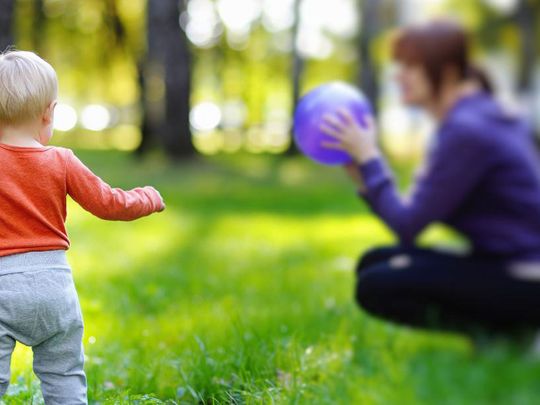
With the long weekend approaching for Eid Al Fitr, many parents who employ helpers such as nannies to care for their children are wondering where the UAE law stands with relation to public holidays for domestic employees.
Of course every family has varying requirements and parents may choose to give their hardworking employees the same amount of time off as they themselves receive. However, it is important to be aware of the legal position so that parents can be sure that they are treating their helpers fairly and in accordance with the UAE law.
We spoke to Kristina Broci, associate in the Employment and Incentives department at law firm Al Tamimi & Company, in order to find out the remit of the leave entitlement according to the UAE Domestic Labour Law, and how to interpret this in the contest of UAE public holidays.
Are domestic employees and other nannies entitled to paid days off on UAE public holidays?
“The UAE Domestic Labour Law (Federal Law No. 10 of 2017) applies to domestic workers, including nannies,” says Broci. “There is no explicit reference to a right to paid time off for public holidays in the legislation.
“Article 13(2) states: ‘The holidays determined by law, or by agreement as well as any other periods due to sickness if they coincide with this leave shall be counted when calculating the period of annual leave granted to the Worker,’” continues Broci.
“Whilst there is reference to “holidays determined by law” there has been no separate legislation put in place to confer a right to UAE public holidays for domestic employees.”
Broci says that employers of domestic workers in the UAE are therefore not required to give them time off if there is a public holiday announcement for either the public or private sector, such as the Eid Al Fitr long weekend.
However, an employer may of course choose to reward their employees with the public holiday off if possible, as a way of ensuring they are well rested and in order to boost morale.
It is worth noting that all domestic employees should still have at least one full day of paid leave off per week.
What is the paid leave entitlement of domestic workers in the UAE?
“Under Article 13 of the UAE Domestic Labour Law, nannies and other domestic workers are entitled to 30 days' annual leave upon completion of each year of employment,” says Broci. “If the period of service is less than one year but more than six months, the worker is entitled to two calendar days of leave for each month. As per Article 12, workers are also entitled to one day of paid leave per week.”
Is the leave entitlement of domestic workers counted as calendar days or working days?
“Whilst there is no explicit reference to the annual leave entitlement being based on calendar days or working days in the UAE Domestic Labour Law, it is clearly envisaged to be the former given other labour legislation within the region also works on a calendar day basis,” says Broci.
The difference between calendar and working days is subtle but important when it comes to calculating time off from work.
Calendar Days: Every day from departure from work until returning back at work is counted against your leave balance, even if some days fall on your usual weekend or “off day”.
This means that if you take off 30 days all together, say from 1 to 30 August, the usual weekend or “off day” would be included in this 30 days of leave and you would have taken your full year’s entitlement.
Working Days: Only working days are counted as days of leave, with your regular weekends or “off day/s” not counting as used leave.
This means that if you took 30 days of holiday off from 1 to 30 August, the usual weekends of “off days” would be subtracted from the leave taken, so that you might still have 4 or 8 days left of leave remaining after the month’s break (depending on how many weekly off days you have).
Does the 30 days of leave entitlement include or exclude public holidays?
“Given the responses above, the maximum 30 calendar days' annual leave entitlement is inclusive of public holidays,” says Broci.
This article was originally published on June 27, 2021, and has been updated.








